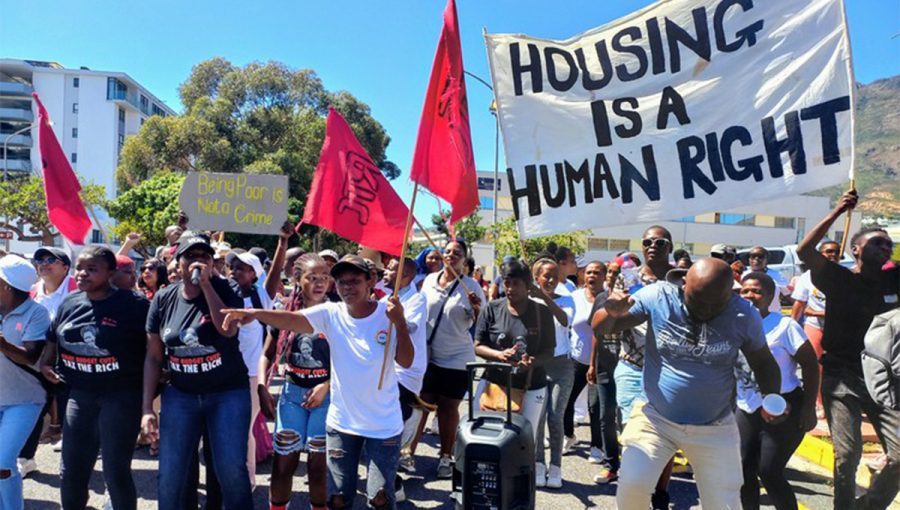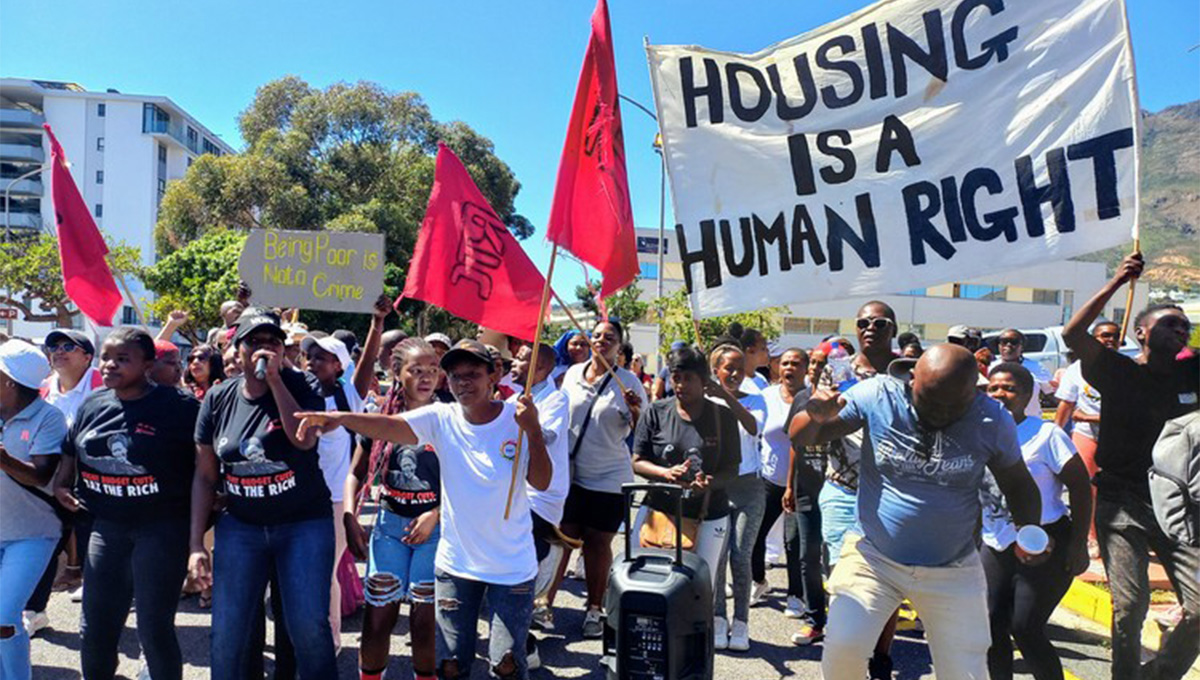
City of Cape Town being sue by man dragged naked from his shack
About 60 people from several civil society groups marched to the Civic Centre in Cape Town on Wednesday. The groups want to “expose law enforcement brutality” and to mark Bulelani Qolani’s litigation bid against the City of Cape Town. Qolani was dragged naked from his home in Khayelitsha by Anti-Land Invasion officers during a lockdown in […]

About 60 people from several civil society groups marched to the Civic Centre in Cape Town on Wednesday. The groups want to “expose law enforcement brutality” and to mark Bulelani Qolani’s litigation bid against the City of Cape Town. Qolani was dragged naked from his home in Khayelitsha by Anti-Land Invasion officers during a lockdown in 2020.
- About 60 people from civil society marched to the City of Cape Town’s offices to launch a campaign to “expose law enforcement brutality”.
- The demonstration also marks the start of Bulelani Qolani’s litigation bid against the City.
- Qolani made headlines for being dragged naked from his shack in Khayelitsha by City of Cape Town law enforcement officers who was evicting people from a new settlement in July 2020, during the lockdown.
- The City has been served with Qolani’s legal papers and has been given 15 days to respond.
Qolani is suing the City for R1.4-million for hospital and medical expenses, psychotherapy, trauma counselling, other expenses he incurred during and after the incident, and loss of earnings.
The marchers want the City to include staff from the provincial Department of Social Development alongside its officers when people face eviction. They also want basic services in informal settlements and well-located land for affordable housing.
“For many years, landless people in informal settlements in Cape Town have sustained both physical and psychological abuse at the hands of Law Enforcement,” they said in their statement.
Qolani is represented by the housing movement Ndifuna Ukwazi. His attorney Danielle Louw said the City had been served the legal papers and had 15 days to respond.
Louw said during negotiations between March 2021 and August 2022 the City had made a settlement offer but this was rejected. Qolani then decided to take legal action. “He has a right to claim compensation for the injuries done to him. The physical injuries, but more so the emotional injuries and harm to his dignity,” said Louw.
Luthando Mcuntula, Covid informal settlement leader and member of The People’s Movement, said the marchers also wanted to stop law enforcement officers from demolishing homes without proper eviction notices or court orders. “They come at any time, even in the middle of the night, without an eviction order or warning. They knock and just take away your shack. When you try to talk and ask them questions, they just take you straight to the cells.”
“We are dealing once again with oppression and brutality by law enforcement,” said Buhle Booi of Ndifuna Ukwazi. What the City did to Bulelani will never be done to another person again. As communities, we feel the pain.”
Riaan Koeberg of the civil society organisation Group For Developers said, “Why must we fight for our basic rights? The only thing we have left is our dignity, but now we must fight for that also. We are tired.”
Kenneth Matlawe of the Housing Assembly said the campaign was also about dignity for people living in informal settlements. “We are living in shacks that are falling apart and in places that are dysfunctional. These informal settlements have no trees and there are no recreational spaces,” he said.
The memorandum was accepted by Vincent Botto, the City’s executive director of safety and security. Botto said the City would respond to the demands. The City had not responded to GroundUp’s questions by the time of publication.
Article originally published on GroundUp By Marecia Damons
